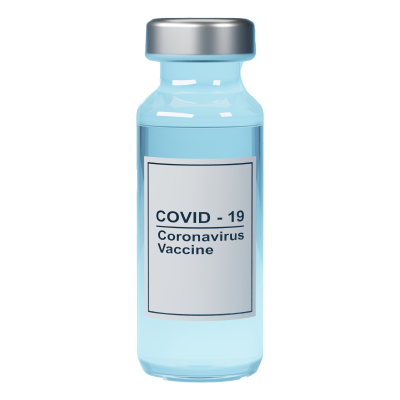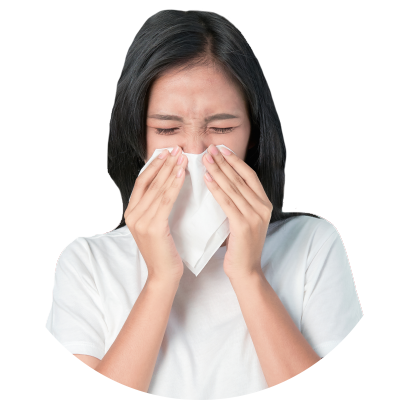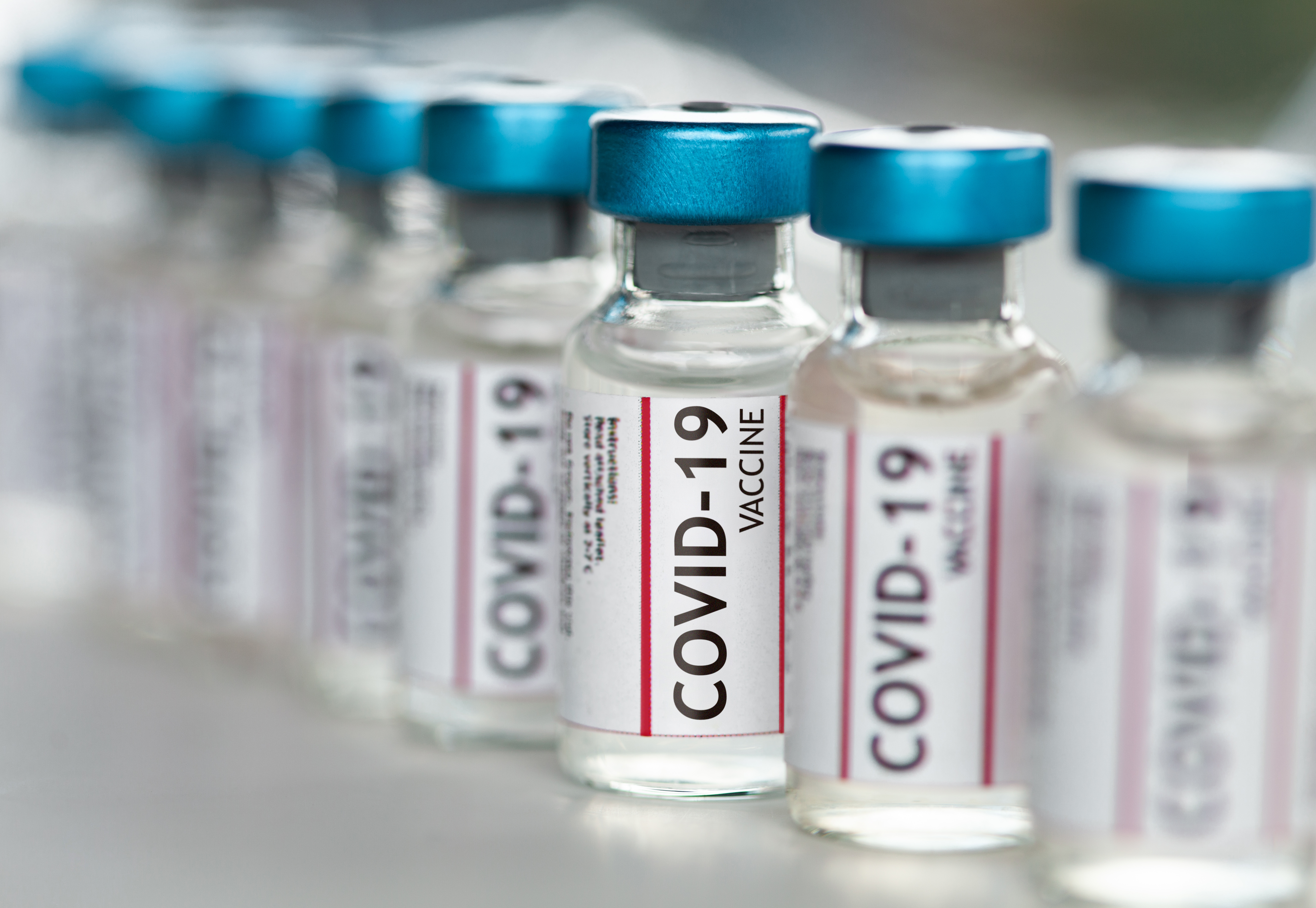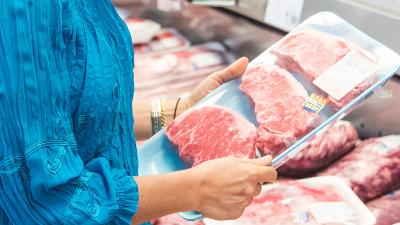COVID-19 Prevention and Treatment Through Lifestyle
A plant-based diet can support the immune system which can help us to respond better to infectious diseases.
The COVID-19 pandemic has mostly settled down; however, it will forever scar many people who live with the long-term consequences of personally being infected and those who have lost loved ones to the infection. During the pandemic, there was a large focus on vaccinations and medical treatment, and less focus on the underlying risk factors for severe COVID-19 and how changes in lifestyle could address these.
Research has found that aside from nonmodifiable risk factors such as sex and age, modifiable risk factors such as heart disease, high blood pressure, obesity, and diabetes are significant risk factors for moderate-severe COVID-19 disease and death.1
Protect With a Plant-Based Diet
Shortly after the pandemic started, researchers looked at more than 3,000 health care workers in high-risk environments across six European countries to determine the role their diet played in their rates of infection during the pandemic.2 A plant-based diet was associated with a 73% lower risk of moderate-severe COVID-19. A plant-based diet was also associated with a lower risk of being infected in the first place. When researchers combined plant-based diets with other plant-predominant diets (which included vegetarian and pescatarian diets) the associated risk was 53% lower. Conversely, low-carbohydrate, high-protein diets were associated with a 48% greater chance of moderate-severe COVID-19 disease.
Fruits and vegetables appear to be protective against COVID-19, presumably because they are anti-inflammatory due to their high antioxidant content. A Polish study of healthy, active, young adults that consumed an average of > 500 grams of vegetables and fruit and > 10 grams of nuts each day had an 86% lower risk of COVID-19.3 In hospitalized patients with COVID-19, a higher consumption of fruit, vegetables, and fiber, was associated with a lower risk of having severe COVID-19 infection, shorter hospital stays, lower C-reactive protein levels (a marker of inflammation), and a lower risk of several COVID-19 symptoms.4
According to the UK Biobank data, consuming ultra-processed foods is associated with a higher risk of COVID-19.5 Ultra-processed foods, including foods such as french fries, candies, and donuts, are typically high in calories, sugar, sodium, and saturated fats, and low in fiber, vitamins, and minerals. They are linked to obesity and other noncommunicable diseases and increase the amount of low-grade inflammation in the body, which could contribute to COVID-19.6 The UK Biobank study also found that an increased consumption of processed meat was associated with an increased risk of infection.7
Long COVID
Many people continue to experience symptoms long after their initial COVID infection has resolved. Symptoms such as fatigue, insomnia, anxiety, depression, joint pain, and weakness, can last for several months to years, and are categorized as long COVID. A plant-based diet has been found to be protective against several of these symptoms and may offer benefit to those dealing with long COVID.8
Underlying Risk Factors
Obesity is an independent risk factor for COVID-19 infection, severe disease resulting in hospitalization, and mortality.9 Individuals who are overweight or obese are at a higher risk for additional lifestyle diseases such as type 2 diabetes, high blood pressure, heart disease, and chronic kidney disease, as well as underlying chronic inflammation which contribute to the poor COVID-19 outcomes.10 Obesity also poses a challenge for mechanical ventilation due to reduced lung volumes resulting from increased abdominal pressure due to excessive abdominal fat tissue, as well as due to excessive fat in the chest, which can prevent the lungs from expanding properly.11,12 Multiple randomized controlled trials have shown that a low-fat, plant-based diet is very effective for weight loss, while simultaneously improving other markers of metabolic health such as cholesterol levels.13
Heart disease, high blood pressure, and diabetes have also been linked to an increased risk of moderate-severe COVID-19 disease, hospitalization, and death.14 To learn more about how a plant-based diet is beneficial for these diseases, visit our Heart Disease, High Blood Pressure and Diabetes pages.
A plant-based diet protects against COVID-19 and other infectious diseases by reducing the risk of infection, promoting a healthy immune system, and addressing underlying risk factors such as diabetes and heart disease.
Roxanne Becker, MBChB, DipIBLM, Medical Editor and Educator, Physicians Committee
Plant prescription
- Eat five servings per day of fruit and vegetables to support your immune system.
- Minimize or eliminate ultra-processed foods, such as cookies, chips, and fast food, as these increase the risk of infection.
- Avoid processed meats as they may increase COVID-19 disease severity.
- Avoid high-fat dairy products, such as cheese, butter, and full-fat milk.
- Replace refined carbohydrates with whole grains.
You can protect yourself against COVID-19 with these preventive actions:
Get Vaccinated
Vaccines provide significant protection against severe cases of COVID-19.
Wear a Mask
Wearing a mask or face covering in public settings can help slow the spread.
Wash Your Hands
Wash regularly with soap and water for at least 20 seconds or use an alcohol-based hand sanitizer.
Avoid Close Contact
Avoid close contact with people who are sick and plan ahead when interacting with large groups.
Practice Good Hygiene
Cover your cough or sneeze with a tissue and regularly clean objects and surfaces.
Avoid Transmission to Others
If you are feeling sick, stay home from work or school and call your health care provider.
5 Foods for a Naturally Strong Immune System
Five foods can help naturally strengthen your immunity to viruses and bacteria that can make you sick.
Tackling Underlying Conditions
Learn More
DID YOU KNOW?
Everyday preventive measures can reduce the risk for viruses.
Report: Powerful Human-Relevant Biomedical Approaches for Studying and Responding to the Novel Coronavirus
References
- Zheng Z, Peng F, Xu B, et al. Risk factors of critical and mortal COVID-19 cases: a systematic literature review and meta-analysis. J Infect. 2020;81(2):e16-e25. doi:10.1016/j.jinf.2020.04.021
- Kim H, Rebholz CM, Hegde S, et al. Plant-based diets, pescatarian diets and COVID-19 severity: a population-based case–control study in six countries. BMJ Nutr Prev Health. 2021;4(1):257-266. doi:10.1136/bmjnph-2021-000272
- Jagielski P, Łuszczki E, Wnęk D, et al. Associations of nutritional behavior and gut microbiota with the risk of COVID-19 in healthy young adults in Poland. Nutrients. 2022;14(2):350. doi:10.3390/nu14020350
- Tadbir Vajargah K, Zargarzadeh N, et al. Association of fruits, vegetables, and fiber intake with COVID-19 severity and symptoms in hospitalized patients: a cross-sectional study. Front Nutr. 2022;9:934568. doi:10.3389/fnut.2022.934568
- Zhou L, Li H, Zhang S, Yang H, Ma Y, Wang Y. Impact of ultra-processed food intake on the risk of COVID-19: a prospective cohort study. Eur J Nutr. 2023;62(1):275-287. doi:10.1007/s00394-022-02982-0
- Tristan Asensi M, Napoletano A, Sofi F, Dinu M. Low-grade inflammation and ultra-processed foods consumption: a Review. Nutrients. 2023;15(6):1546. doi:10.3390/nu15061546
- Vu TT, Rydland KJ, Achenbach CJ, Van Horn L, Cornelis MC. Dietary behaviors and incident COVID-19 in the UK Biobank. Nutrients. 2021;13(6):2114. doi:10.3390/nu13062114
- Storz MA. Lifestyle adjustments in long-COVID management: potential benefits of plant-based diets. Curr Nutr Rep. 2021;10(4):352-363. doi:10.1007/s13668-021-00369-x
- Singh R, Rathore SS, Khan H, et al. Association of obesity with COVID-19 severity and mortality: an updated systemic review, meta-analysis, and meta-regression. Front Endocrinol (Lausanne). 2022;13:780872. doi:10.3389/fendo.2022.780872
- Mohammad S, Aziz R, Al Mahri S, et al. Obesity and COVID-19: what makes obese host so vulnerable? Immun Ageing. 2021;18(1):1. doi:10.1186/s12979-020-00212-x
- Simonnet A, Chetboun M, Poissy J, et al. High prevalence of obesity in severe acute respiratory syndrome coronavirus-2 (SARS-CoV-2) requiring invasive mechanical ventilation. Obesity (Silver Spring). 2020;28(7):1195-1199. doi:10.1002/oby.22831
- Dixon AE, Peters U. The effect of obesity on lung function. Expert Rev Respir Med. 2018;12(9):755-767. doi:10.1080/17476348.2018.1506331
- Ivanova S, Delattre C, Karcheva-Bahchevanska D, Benbasat N, Nalbantova V, Ivanov K. Plant-based diet as a strategy for weight control. Foods. 2021;10(12):3052. doi:10.3390/foods10123052
- Zheng Z, Peng F, Xu B, et al. Risk factors of critical and mortal COVID-19 cases: a systematic literature review and meta-analysis. J Infect. 2020;81(2):e16-e25. doi:10.1016/j.jinf.2020.04.021






















